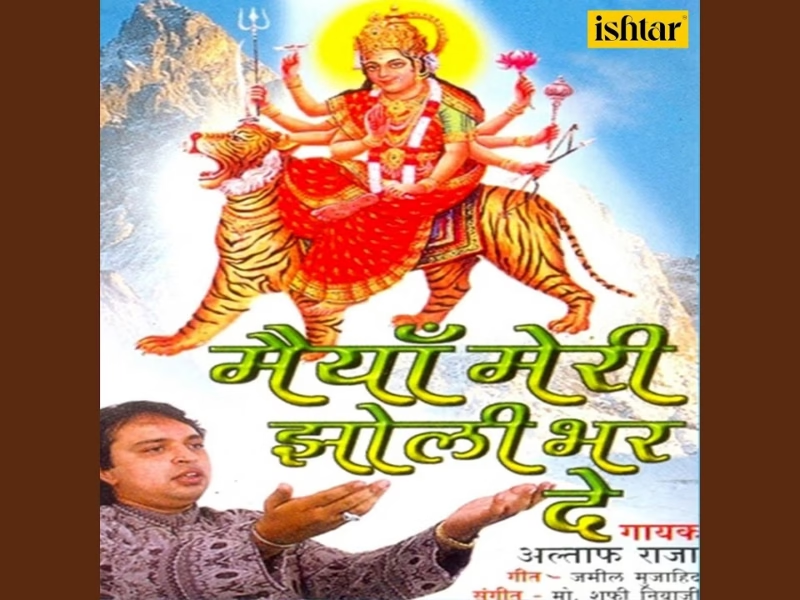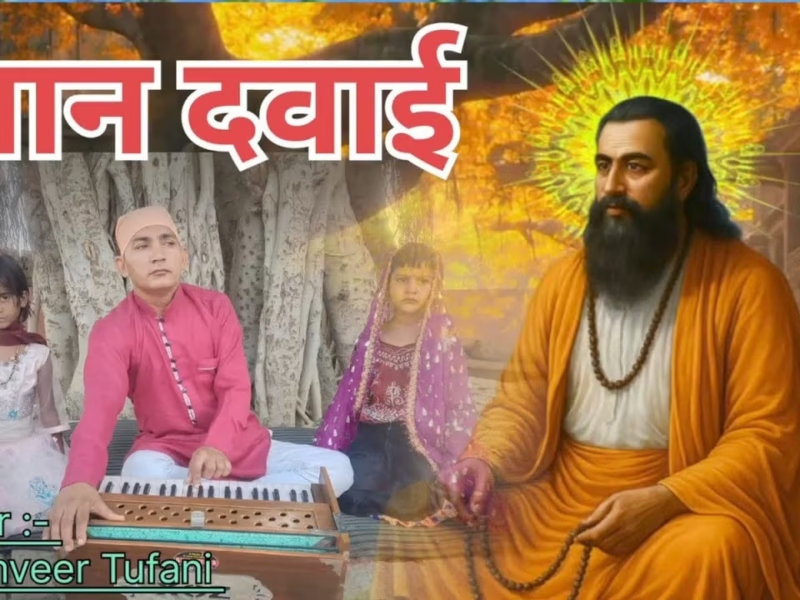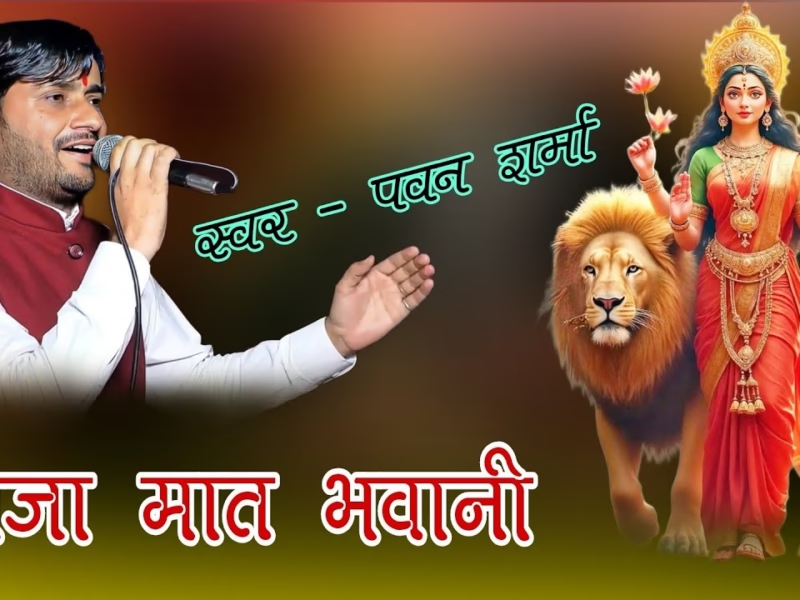ॐ तत्सदिति श्रीमद्भगवद्गीतासूपनिषत्सु ब्रह्मविद्यायां योगशास्त्रे
श्रीकृष्णार्जुनसंवादे सांख्ययोगो नाम द्वितीयोऽध्यायः ॥2॥
(अर्जुन की कायरता के विषय में श्री कृष्णार्जुन-संवाद )
अथ द्वितीयोऽध्यायः- सांख्ययोग
विषीदन्तमिदं वाक्यमुवाच मधुसूदनः ॥ 2.1
Sanjay said: Seeing Arjun overwhelmed with pity, his mind grief-stricken, and his eyes full of tears, Shree Krishna spoke the following words.
अनार्यजुष्टमस्वर्ग्यमकीर्तिकरमर्जुन।। 2.2
The Supreme Lord said: My dear Arjun, how has this delusion overcome you in this hour of peril? It is not befitting an honorable person. It leads not to the higher abodes, but to disgrace.
क्षुद्रं हृदयदौर्बल्यं त्यक्त्वोत्तिष्ठ परन्तप ॥ 2.3
O Parth, it does not befit you to yield to this unmanliness. Give up such petty weakness of heart and arise, O vanquisher of enemies.
इषुभिः प्रतियोत्स्यामि पूजार्हावरिसूदन ॥ 2.4
Arjun said: O Madhusudan, how can I shoot arrows in battle on men like Bheeshma and Dronacharya, who are worthy of my worship, O destroyer of enemies?
हत्वार्थकामांस्तु गुरूनिहैवभुंजीय भोगान् रुधिरप्रदिग्धान् ॥ 2.5
It would be better to live in this world by begging, than to enjoy life by killing these noble elders, who are my teachers. If we kill them, the wealth and pleasures we enjoy will be tainted with blood.
यानेव हत्वा न जिजीविषाम-स्तेऽवस्थिताः प्रमुखे धार्तराष्ट्राः ॥ 2.6
We do not even know which result of this war is preferable for us—conquering them or being conquered by them. Even after killing them we will not desire to live. Yet they have taken the side of Dhritarasthra, and now stand before us on the battlefield.
यच्छ्रेयः स्यान्निश्चितं ब्रूहि तन्मेशिष्यस्तेऽहं शाधि मां त्वां प्रपन्नम् ॥ 2.7
I am confused about my duty, and am besieged with anxiety and faintheartedness. I am your disciple, and am surrendered to you. Please instruct me for certain what is best for me.
अवाप्य भूमावसपत्रमृद्धं-राज्यं सुराणामपि चाधिपत्यम् ॥ 2.8
I can find no means of driving away this anguish that is drying up my senses. Even if I win a prosperous and unrivalled kingdom on the earth, or gain sovereignty like the celestial gods, I will be unable to dispel this grief.
सेनयोरुभयोर्मध्ये विषीदंतमिदं वचः ॥ 2.10
O Dhritarashtra, thereafter, in the midst of both the armies, Shree Krishna smilingly spoke the following words to the grief-stricken Arjun.
संजय उवाच: एवमुक्त्वा हृषीकेशं गुडाकेशः परन्तप ।
न योत्स्य इतिगोविन्दमुक्त्वा तूष्णीं बभूव ह ॥ 2.9
Sanjay said: Having thus spoken, Gudakesh, that chastiser of enemies, addressed Hrishikesh: “Govind, I shall not fight,” and became silent.
श्री भगवानुवाचअशोच्यानन्वशोचस्त्वं प्रज्ञावादांश्च भाषसे ।
गतासूनगतासूंश्च नानुशोचन्ति पण्डिताः ॥ 2.11
The Supreme Lord said: While you speak words of wisdom, you are mourning for that which is not worthy of grief. The wise lament neither for the living nor for the dead.
न चैव न भविष्यामः सर्वे वयमतः परम् ॥ 2.12
Never was there a time when I did not exist, nor you, nor all these kings; nor in the future shall any of us cease to be.
तथा देहान्तरप्राप्तिर्धीरस्तत्र न मुह्यति ॥ 2.13
Just as the embodied soul continuously passes from childhood to youth to old age, similarly, at the time of death, the soul passes into another body. The wise are not deluded by this.
आगमापायिनोऽनित्यास्तांस्तितिक्षस्व भारत ॥ 2.14
O son of Kunti, the contact between the senses and the sense objects gives rise to fleeting perceptions of happiness and distress. These are non-permanent, and come and go like the winter and summer seasons. O descendent of Bharat, one must learn to tolerate them without being disturbed.
समदुःखसुखं धीरं सोऽमृतत्वाय कल्पते ॥ 2.15
O Arjun, noblest amongst men, that person who is not affected by happiness and distress, and remains steady in both, becomes eligible for liberation.
उभयोरपि दृष्टोऽन्तस्त्वनयोस्तत्वदर्शिभिः ॥ 2.16
Of the transient there is no endurance, and of the eternal there is no cessation. This has verily been observed by the seers of the truth, after studying the nature of both.
विनाशमव्ययस्यास्य न कश्चित्कर्तुमर्हति ॥ 2.17
That which pervades the entire body, know it to be indestructible. No one can cause the destruction of the imperishable soul.
अनाशिनोऽप्रमेयस्य तस्माद्युध्यस्व भारत ॥ 2.18
Only the material body is perishable; the embodied soul within is indestructible, immeasurable, and eternal. Therefore, fight, O descendent of Bharat.
उभौ तौ न विजानीतो नायं हन्ति न हन्यते ॥ 2.19
Neither of them is in knowledge—the one who thinks the soul can slay and the one who thinks the soul can be slain. For truly, the soul neither kills nor can it be killed.
अजो नित्यः शाश्वतोऽयं पुराणो-न हन्यते हन्यमाने शरीरे ॥ 2.20
The soul is neither born, nor does it ever die; nor having once existed, does it ever cease to be. The soul is without birth, eternal, immortal, and ageless. It is not destroyed when the body is destroyed.
कथं स पुरुषः पार्थ कं घातयति हन्ति कम् ॥ 2.21
O Parth, how can one who knows the soul to be imperishable, eternal, unborn, and immutable kill anyone or cause anyone to kill?
तथा शरीराणि विहाय जीर्णा-न्यन्यानि संयाति नवानि देही ॥ 2.22
As a person sheds worn-out garments and wears new ones, likewise, at the time of death, the soul casts off its worn-out body and enters a new one.
न चैनं क्लेदयन्त्यापो न शोषयति मारुतः ॥ 2.23
Weapons cannot shred the soul, nor can fire burn it. Water cannot wet it, nor can the wind dry it.
नित्यः सर्वगतः स्थाणुरचलोऽयं सनातनः ॥ 2.24
The soul is unbreakable and incombustible; it can neither be dampened nor dried. It is everlasting, in all places, unalterable, immutable, and primordial.
तस्मादेवं विदित्वैनं नानुशोचितुमर्हसि॥ 2.25
The soul is spoken of as invisible, inconceivable, and unchangeable. Knowing this, you should not grieve for the body.
तथापि त्वं महाबाहो नैवं शोचितुमर्हसि ॥ 2.26
If, however, you think that the self is subject to constant birth and death, O mighty-armed Arjun, even then you should not grieve like this.
तस्मादपरिहार्येऽर्थे न त्वं शोचितुमर्हसि ॥ 2.26
Death is certain for one who has been born, and rebirth is inevitable for one who has died. Therefore, you should not lament over the inevitable.
अव्यक्तनिधनान्येव तत्र का परिदेवना ॥ 2.28
O scion of Bharat, all created beings are unmanifest before birth, manifest in life, and again unmanifest on death. So why grieve?
आश्चर्यवच्चैनमन्यः श्रृणोति श्रुत्वाप्येनं वेद न चैव कश्चित् ॥ 2.29
Some see the soul as amazing, some describe it as amazing, and some hear of the soul as amazing, while others, even on hearing, cannot understand it at all.
तस्मात्सर्वाणि भूतानि न त्वं शोचितुमर्हसि ॥ 2.30
O Arjun, the soul that dwells within the body is immortal; therefore, you should not mourn for anyone.
स्वधर्ममपि चावेक्ष्य न विकम्पितुमर्हसि ।
धर्म्याद्धि युद्धाच्छ्रेयोऽन्यत्क्षत्रियस्य न विद्यते ॥ 2.31
Besides, considering your duty as a warrior, you should not waver. Indeed, for a warrior, there is no better engagement than fighting for upholding of righteousness.
सुखिनः क्षत्रियाः पार्थ लभन्ते युद्धमीदृशम् ॥ 2.32
O Parth, happy are the warriors to whom such opportunities to defend righteousness come unsought, opening for them the stairway to the celestial abodes.
ततः स्वधर्मं कीर्तिं च हित्वा पापमवाप्स्यसि ॥ 2.33
If, however, you refuse to fight this righteous war, abandoning your social duty and reputation, you will certainly incur sin.
सम्भावितस्य चाकीर्ति-र्मरणादतिरिच्यते ॥ 2.34
People will speak of you as a coward and a deserter. For a respectable person, infamy is worse than death.
येषां च त्वं बहुमतो भूत्वा यास्यसि लाघवम् ॥ 2.35
The great generals who hold you in high esteem will think that you fled from the battlefield out of fear, and thus will lose their respect for you.
निन्दन्तस्तव सामर्थ्यं ततो दुःखतरं नु किम् ॥ 2.36
Your enemies will defame and humiliate you with unkind words, disparaging your might. Alas, what could be more painful than that?
तस्मादुत्तिष्ठ कौन्तेय युद्धाय कृतनिश्चयः ॥ 2.37
If you fight, you will either be slain on the battlefield and go to the celestial abodes, or you will gain victory and enjoy the kingdom on earth. Therefore arise with determination, O son of Kunti, and be prepared to fight.
ततो युद्धाय युज्यस्व नैवं पापमवाप्स्यसि ॥ 2.38
Fight for the sake of duty, treating alike happiness and distress, loss and gain, victory and defeat. Fulfilling your responsibility in this way, you will never incur sin.
एषा तेऽभिहिता साङ्ख्ये बुद्धिर्योगे त्विमां श्रृणु ।
बुद्ध्या युक्तो यया पार्थ कर्मबन्धं प्रहास्यसि ॥ 2.39
Hitherto, I have explained to you Sānkhya Yog, or analytic knowledge regarding the nature of the soul. Now listen, O Parth, as I reveal Buddhi Yog, or the Yog of Intellect. When you work with such understanding, you will be freed from the bondage of karma.
स्वल्पमप्यस्य धर्मस्य त्रायते महतो भयात् ॥ 2.40
Working in this state of consciousness, there is no loss or adverse result, and even a little effort saves one from great danger.
बहुशाका ह्यनन्ताश्च बुद्धयोऽव्यवसायिनाम् ॥ 2.41
O descendent of the Kurus, the intellect of those who are on this path is resolute, and their aim is one-pointed. But the intellect of those who are irresolute is many-branched.
वेदवादरताः पार्थ नान्यदस्तीति वादिनः ॥ 2.42
क्रियाविश्लेषबहुलां भोगैश्वर्यगतिं प्रति ॥ 2.43
With their minds deeply attached to worldly pleasures and their intellects bewildered by such things, they are unable to possess the resolute determination for success on the path to God.
The Vedas deal with the three modes of material nature, O Arjun. Rise above the three modes to a state of pure spiritual consciousness. Freeing yourself from dualities, eternally fixed in truth, and without concern for material gain and safety, be situated in the self.
Whatever purpose is served by a small well of water is naturally served in all respects by a large lake. Similarly, one who realizes the Absolute Truth also fulfills the purpose of all the Vedas.
You have a right to perform your prescribed duties, but you are not entitled to the fruits of your actions. Never consider yourself to be the cause of the results of your activities, nor be attached to inaction.
Be steadfast in the performance of your duty, O Arjun, abandoning attachment to success and failure. Such equanimity is called Yog.
Seek refuge in divine knowledge and insight, O Arjun, and discard reward-seeking actions that are certainly inferior to works performed with the intellect established in Divine knowledge. Miserly are those who seek to enjoy the fruits of their works
One who prudently practices the science of work without attachment can get rid of both good and bad reactions in this life itself. Therefore, strive for Yog, which is the art of working skillfully (in proper consciousness).
The wise endowed with equanimity of intellect, abandon attachment to the fruits of actions, which bind one to the cycle of life and death. By working in such consciousness, they attain the state beyond all suffering.
When your intellect crosses the quagmire of delusion, you will then acquire indifference to what has been heard and what is yet to be heard (about enjoyments in this world and the next).
When your intellect ceases to be allured by the fruitive sections of the Vedas and remains steadfast in divine consciousness, you will then attain the state of perfect Yog.
Arjun said : O Keshav, what is the disposition of one who is situated in divine consciousness? How does an enlightened person talk? How does he sit? How does he walk?
The Supreme Lord said: O Parth, when one discards all selfish desires and cravings of the senses that torment the mind, and becomes satisfied in the realization of the self, such a person is said to be transcendentally situated.
One whose mind remains undisturbed amidst misery, who does not crave for pleasure, and who is free from attachment, fear, and anger, is called a sage of steady wisdom.
One who remains unattached under all conditions, and is neither delighted by good fortune nor dejected by tribulation, he is a sage with perfect knowledge.
One who is able to withdraw the senses from their objects, just as a tortoise withdraws its limbs into its shell, is established in divine wisdom.
Aspirants may restrain the senses from their objects of enjoyment, but the taste for the sense objects remains. However, even this taste ceases for those who realizes the Supreme.
The senses are so strong and turbulent, O son of Kunti, that they can forcibly carry away the mind even of a person endowed with discrimination and practicing self-control.
They are established in perfect knowledge, who subdue their senses and keep their minds ever absorbed in me.
While contemplating on the objects of the senses, one develops attachment to them. Attachment leads to desire, and from desire arises anger.
Anger leads to clouding of judgment, which results in bewilderment of the memory. When the memory is bewildered, the intellect gets destroyed; and when the intellect is destroyed, one is ruined.
But one who controls the mind, and is free from attachment and aversion, even while using the objects of the senses, attains the Grace of God.
By divine grace comes the peace in which all sorrows end, and the intellect of such a person of tranquil mind soon becomes firmly established in God.
But an undisciplined person, who has not controlled the mind and senses, can neither have a resolute intellect nor steady contemplation on God. For one who never unites the mind with God there is no peace; and how can one who lacks peace be happy?
Just as a strong wind sweeps a boat off its chartered course on the water, even one of the senses on which the mind focuses can lead the intellect astray.
Therefore, one who has restrained the senses from their objects, O mighty armed Arjun, is firmly established in transcendental knowledge.
What all beings consider as day is the night of ignorance for the wise, and what all creatures see as night is the day for the introspective sage.
Just as the ocean remains undisturbed by the incessant flow of waters from rivers merging into it, likewise the sage who is unmoved despite the flow of desirable objects all around him attains peace, and not the person who strives to satisfy desires.
That person, who gives up all material desires and lives free from a sense of greed, proprietorship, and egoism, attains perfect peace.











